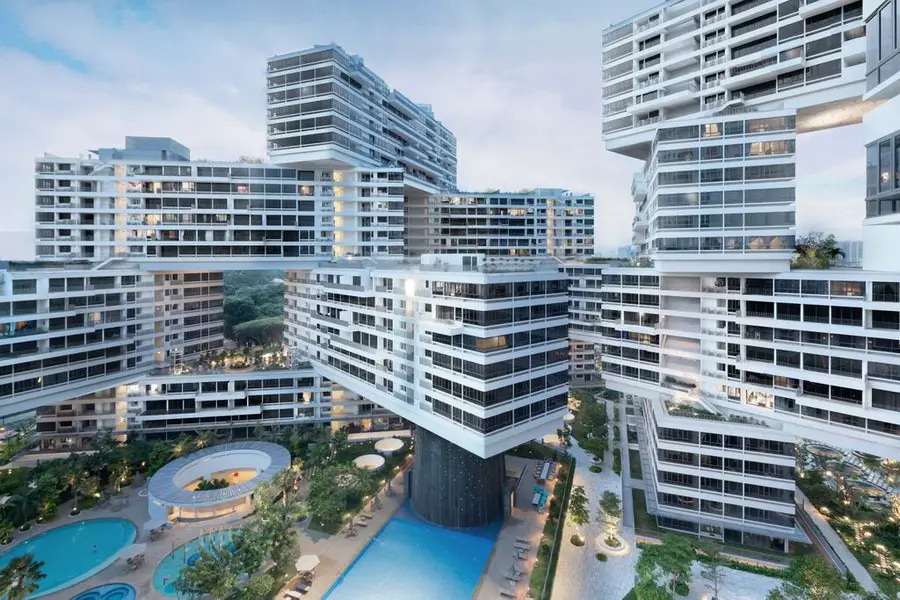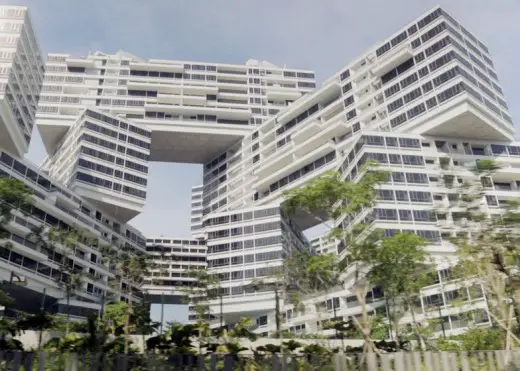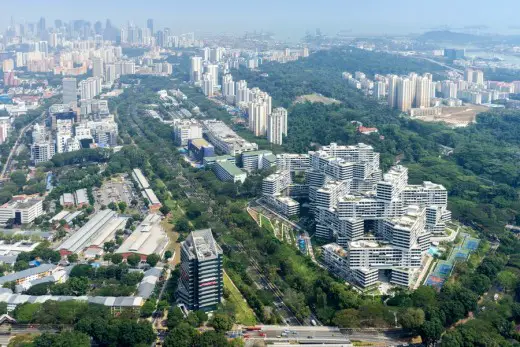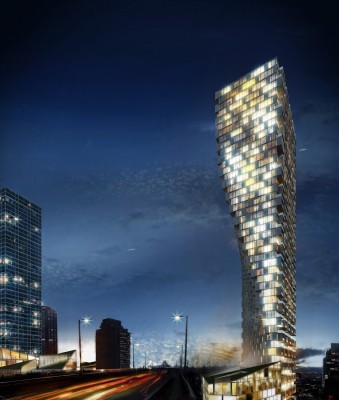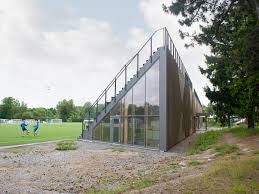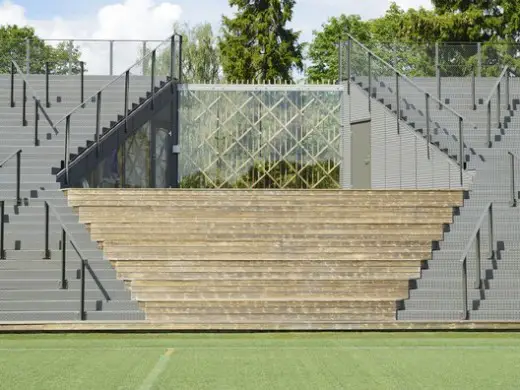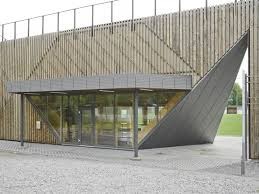World Building of the Year 2015 – WAF, Winner, Buildings, News, Architects
World Building of the Year 2015 – WAF
WAF Singapore : International Architectural Prize Winners
10 Mar 2015
WAF Awards 2015 Winners
The Interlace in Singapore
Design: OMA / Buro Ole Scheeren
The Interlace, a vertical village in Singapore, has been crowned World Building of the Year 2015 at the World Architecture Festival. The residential development, designed by OMA/Buro Ole Scheeren, is a radically new approach to contemporary living in a tropical environment.
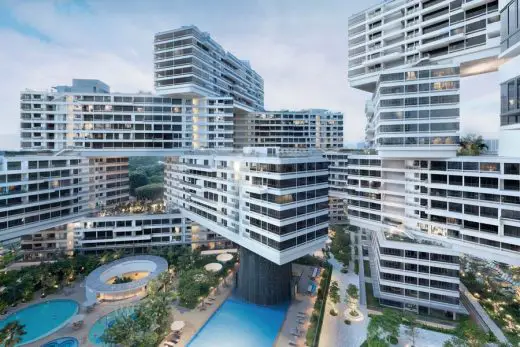
The Interlace, Singapore, by OMA/Buro Ole Scheeren. The residential development has been named World Building of the Year 2015 at the World Architecture Festival. images : Ole Scheeren
The Interlace is one of the most ambitious residential developments in Singapore’s history, generating an intricate network of living and social spaces intertwined with the natural environment. Instead of following the default typology of housing in the region – clusters of isolated towers – the vertical is turned horizontal, with 31 apartment blocks, each six stories tall and 70 meters long. Stacked in hexagonal arrangements around eight large-scale open permeable courtyards, the scheme creates a network of internal and external environments that create a multitude of shared and private outdoor spaces on multiple levels.
World Architecture Festival Director Paul Finch praised the project, saying ‘The Interlace is blazing a trail with an example of bold, contemporary architectural thinking. The project presents an alternative way of thinking about developments which might otherwise become generic tower clusters’.
The Interlace is now the eighth project to claim the illustrious title of World Building of the Year, since its inception at the annual World Architecture Festival in 2008. The home project win marks the culmination of the Festival’s four-year run in Singapore, before it moves to Berlin in 2016.
Other winners on the evening included Vancouver House, Canada, by Bjarke Ingells Group; Yanweizhou Park, China, by Turenscape and Lidingövallen by DinellJohansson. Each was presented with WAF’s distinctive ‘W” award at the Marina Bay Sands in Singapore.
The winning Future Project of the Year 2015, which celebrates the best of the world’s architecture that is yet to be completed, is Vancouver House in Canada, by BIG Bjarke Ingells Group.
The project negotiates a difficult site trisected by an overpass, with BIG’s response optimising the conditions for its future inhabitants — in the air as well as on the street. As a result, it creates desirable spaces for living at its top, while freeing up a generous public space at its base. The silhouette of Vancouver House resembles a curtain being drawn aside, welcoming people as they enter the city.
Judges said of BIG’s Vancouver House: ‘This is a delightful project that generates an exemplar new urban typology, mitigating the destructive impact of the highway flyover and creating an opportunity from typically abandoned public space. It will impact positively on many future municipality and developer-led agendas for cities across the world.’
Landscape of the Year 2015 went to Yanweizhou Park in China, a project by Turenscape International. Yanweizhou Park showcases a replicable and resilient ecological solution to large-scale flood management. Sitting at the mouth of three rivers, each over 100 metres wide, the Yanweizhou project uses groundbreaking strategy to create a water-resilient terraced river embankment that is covered with flood adapted native vegetation. The park’s pedestrian paths and pavilions are integrated with the planting terraces, which adapt to seasonal flooding.
The project was praised for its ‘significant impact on flood migration and use of bridges to playfully knit the locality together, creating communities on both sides of the river.’
The Small Project of the Year was awarded to Lidingövallen, a Swedish football stadium in miniature, by DinellJohansson. Praised for its imaginative response and the big impact possible with a small project, the judges called it ‘a heroic result’.
The project that was awarded the Colour Prize, in association with AkzoNobel, is the ONS Incek showroom and sales office, Turkey, by Yazgan Design Architecture. Recognised as the best use of colour across the year’s 338 shortlisted entries, the judges felt that the use of colour contributed to a strong piece of architecture that saw form and colour integrate seamlessly.
Jeremy Rowe, Managing Director of AkzoNobel Decorative Paints, Southeast & South Asia, Middle East, said: “We would like to congratulate all the projects that have been shortlisted for the Colour Prize. The quality of the submissions this year has been exceptionally high, and we are very honoured to sponsor this prestigious accolade that celebrates the use of colour to transform architectures.
As the world’s leading paints and coatings company, AkzoNobel strives to be at the forefront of design trends. Setting the tone with ‘Monarch Gold’ AkzoNobel Colour of The Year for 2016, we hope to inspire more cutting-edge designs from architects in the coming year.”
Running alongside the awards programme, WAF also hosted a number of keynote speeches, live panel debates and building tours during the three-day festival. Arcaid images held a display of shortlisted entries from its Architectural Photographer of the Year Award, now in its fourth year, which was won by Fernando Guerra for his striking image of the EPFL Quartier Nord in Switzerland.
The innovative thinking of global architecture students was also celebrated at the festival, with a live workshop running for the duration of the festival. Seven universities were invited to reimagine our cities for the future, with students demonstrating their potential in front of the world’s leading architects. City of Lakes by School of Architecture Planning, Bhopal, India, was judged the most exciting submission, beating stiff competition from universities in Spain, UK and across Asia.
World Building of the Year 2015 – WAF images / information received 061115
Location: Singapore
WAF Awards 2012
World Building of the Year Award 2012
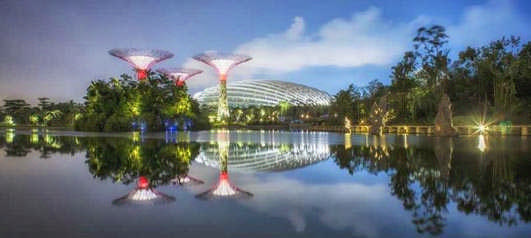
photo : Darren Chin
World Building of the Year winner : Gardens by the Bay Conservatories Singapore
World Architecture Festival Awards 2012 buildings news
WAF Awards 2011
WAF Awards
the e-architect team were at WAF from Wed to Fri
Media-TIC wins World Building of the Year 2011 at World Architecture Festival Awards
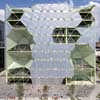
image from architect
Media-TIC : World Building of the Year 2011
CCIB Building, Diagonal Mar, Barcelona, Spain
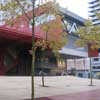
photo © Adrian Welch, 2011
WAF Awards venue : CCIB Barcelona
World Building of the Year 2010
WAF Awards Overall winner
MAXXI, Rome, winner of World Building of the Year 2010

photo : Roland Halbe
MAXXI Rome by Zaha Hadid Architects
WAF Awards 2010 – Festival Events
World Building of the Year 2009
Mapungubwe Interpretation Centre, South Africa
Peter Rich Architects
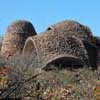
picture from FD
WAF Building of the Year 2009
World Building of the Year 2008
Universita Luigi Bocconi, Italy
Grafton Architects
WAF Building of the Year 2008
World Architecture Festival Awards 2009 – including the Shortlist
WAF Awards 2008 : 2008
Comments / photos for the World Architecture Festival Awards page welcome

